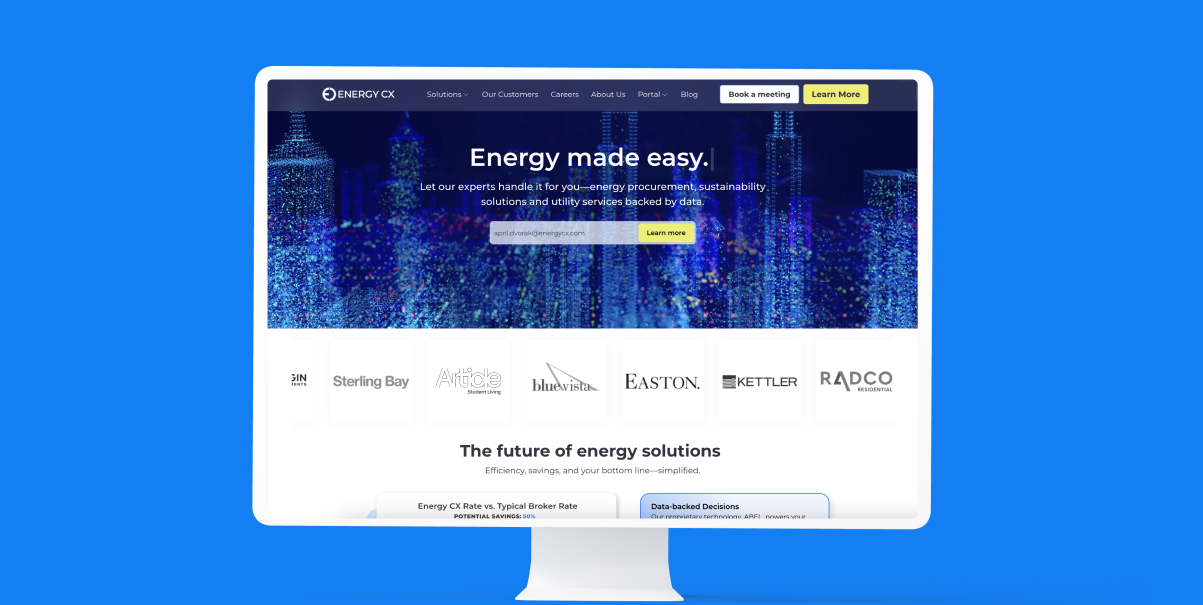Forecasting Energy Costs for Commercial Real Estate
Forecasting energy costs is a critical aspect of managing commercial real estate properties, given the multifaceted factors that influence pricing in the energy market. Whether you're a property owner, manager, or investor, having a clear understanding of how to predict energy costs for the coming year and beyond is essential for budgeting, financial planning, and ensuring profitability. In this blog, we'll explore practical strategies and considerations tailored to the unique needs of the commercial real estate industry for forecasting energy costs amidst the intricacies of the energy market.
Understanding the Variables:
Before delving into forecasting methodologies, it's crucial to grasp the variables that impact energy costs in the commercial real estate sector. These variables encompass several key aspects:
- Building Size and Usage: The size and usage of commercial properties, including office buildings, retail spaces, and industrial facilities, significantly influence energy consumption patterns and, consequently, energy costs.
- Energy Efficiency Measures: Investments in energy-efficient technologies, such as LED lighting, HVAC systems, and building insulation, can reduce energy consumption and mitigate costs over time.
- Regulatory Compliance: Compliance with building codes, energy efficiency standards, and environmental regulations may necessitate investments in energy-efficient upgrades or renewable energy systems, which can affect energy costs.
- Tenant Behavior: Tenant behavior, such as occupancy levels, operating hours, and usage patterns, can impact energy consumption within commercial properties and influence overall energy costs.
Forecasting Strategies:
Given the unique considerations of the commercial real estate industry, forecasting energy costs requires tailored strategies and approaches. Here are some practical methods to consider:
- Historical Data Analysis: Analyzing historical energy consumption data for commercial properties can provide insights into trends and seasonal variations, helping to forecast future energy costs based on past performance.
- Energy Audits: Conducting energy audits to assess the current energy performance of commercial properties and identify opportunities for energy efficiency improvements can inform forecasting efforts and guide investment decisions.
- Technology Integration: Leveraging building management systems and energy monitoring tools can enable real-time tracking of energy consumption and facilitate proactive management of energy costs.
- Tenant Engagement: Engaging tenants in energy-saving initiatives, such as energy efficiency awareness campaigns and incentivized conservation programs, can foster a culture of sustainability and contribute to cost reduction efforts.
- Regulatory Monitoring: Staying abreast of regulatory developments, such as changes in energy efficiency standards or incentives for renewable energy adoption, can help anticipate future compliance requirements and associated costs.
Forecasting energy costs in the commercial real estate industry requires a nuanced understanding of the factors at play and tailored strategies to address the unique needs of properties and tenants. By leveraging historical data, conducting energy audits, integrating technology, engaging tenants, and monitoring regulatory developments, stakeholders can make more informed decisions and effectively manage energy costs to enhance the profitability and sustainability of commercial real estate assets. While uncertainties may persist in the energy market, proactive planning and strategic approaches can empower stakeholders to navigate challenges and optimize energy management practices for long-term success.
Energy CX can streamline the forecasting process by leveraging market expertise and industry insights. By analyzing market trends, negotiating favorable energy contracts, and providing tailored energy solutions, Energy CX can help commercial real estate stakeholders accurately forecast their energy budgets and optimize cost-saving opportunities. Gain peace of mind knowing that your energy costs are efficiently managed, allowing you to focus on driving value and growth within your real estate portfolio.
Discover how Energy CX's technology effortlessly manages forecasting for you.



